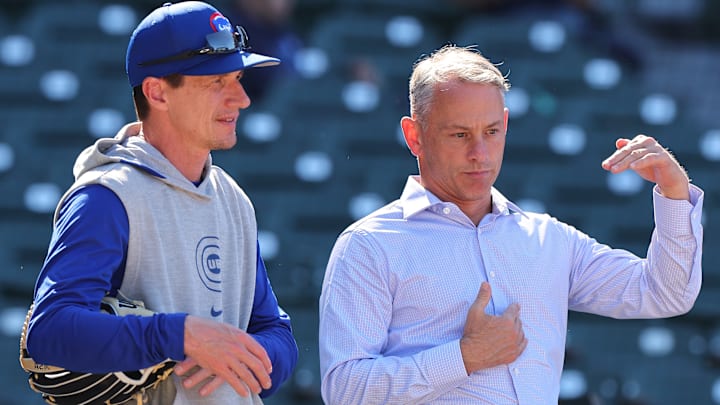One of the biggest reasons why the Chicago Cubs didn't reach the postseason in 2024 is the fact that the offense went dormant during the months of May and June.
To truly provide the context of the Cubs' offensive struggles this season, there were 57 games this season in which the Cubs did not hit a home run. Of those 57 games, the Cubs had a record of 17-40. Of the 40 losses that the Cubs had in games where they did not hit a home run, 12 were one-run losses.
Jed Hoyer has admitted that the Cubs have lacked power in each of the past two years. While Hoyer has mentioned in the past that the Cubs would need to address their search for power in the offseason, that wasn't the tune he had on Tuesday while speaking at the Cubs' end-of-season press conference.
Jed Hoyer is blaming climate change for #Cubs' poor offensive performance. Too much wind blowing in at Wrigley.
— Mike McGraw (@McGrawDHSports) October 1, 2024
Jed Hoyer casts blame on the weather for the Cubs' offensive struggles in 2024.
Park factor has been a common talking point for the Cubs over the course of the past month. Throughout the entire season, Wrigley Field has played like one of the most pitcher-friendly parks in all of Major League Baseball. It's also something that Scott Boras mentioned in September when asked about where things stand with Cody Bellinger's player option.
While that is true, and the climate at Wrigley Field was different from the average summer at the Friendly Confines, the idea that it played as a pitcher-friendly ballpark can't be a crutch that Hoyer uses to prop up the current state of the team's offense. For two years in a row, the Cubs' offense broke and the front office had no real answer for it.
Park factor is certainly something that the Cubs' front office will need to account for this offseason having said that, in his press conference on Tuesday, Hoyer seemed to reiterate that the Cubs need to focus on their players outperforming their expectations.
The problem with that mindset is that Hoyer, on the one hand, is saying the weather is one reason players couldn't outperform their expectations, but they need to count on that moving forward. Rather than hope that Wrigley Field doesn't play like a pitcher-friendly park next season, leading to current players outperforming their expectations, Hoyer can shift from that philosophy to adding external solutions to a problem that has existed since before the park factor was the flavor of the month.
